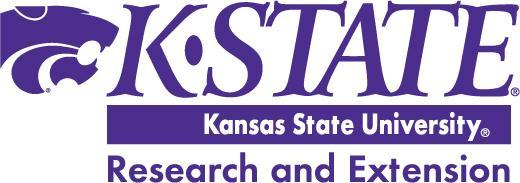OTTAWA – Kansas State University Frontier District Extension officials have released a disputed segment of county fair records they denied weeks ago for publication in the The Anderson County Review’s annual 4H County Fair results section – records which until this year had been provided for publication for as much as the past 75 years in order to recognize 4H exhibitors in the county fair.
An attorney for the Review, published in Garnett, and legal counsel for the Frontier Extension District exchanged letters on the Kansas Open Record Act issue after Frontier officials twice denied the Review’s request for first and last names of 4H exhibitors age 13 and under, claiming authority to withhold the information under a federal online children’s privacy law enacted in 1998. The incident marks the first time in 25 years since the federal law was passed that Extension officials are known to have used it to deny the public records. Records were also denied to the Osage County Herald-Chronicle at Osage City for its fair results section this year according to publisher Chris Faimon. The Frontier District Extension includes Osage, Franklin and Anderson counties.
A limited straw poll of other state newspapers by the Review found all other publications contacted in Kansas received the same records this year they had traditionally obtained from their local extension offices, said Review publisher Dane Hicks.

The Review’s attorney Max Kautsch, who also serves as the Kansas Press Association’s legal counsel on government transparency issues, said the issue illuminated the grassroots importance of open records laws and the importance for government officials at every level to be familiar with records they maintain which are actually owned by and subject to review by the public.
Frontier District Director Rebecca McFarland refused to provide the records first under limited exemptions to the state’s open record law. It (the exemption) is applicable only if information in a record meets the definition of “clearly unwarranted invasion of privacy” found in K.S.A. 45-217(d), which means “revealing information” that would be both “highly offensive to a reasonable person” and “not of legitimate concern to the public,” Kautsch wrote in a letter to McFarland.
“Simply put, last names do not qualify as ‘information highly offensive to a reasonable person.’ The law was designed to protect information like social security numbers and birthdates, the disclosure of which would most certainly be “highly offensive.” Kautsch said. The same cannot be said for information that could be found in a phonebook, he said.

“Moreover,” Kautsch wrote, “as the District recognized for decades, and as other Extension Offices still understand, disclosure of the full names is a matter of public concern in a community where the county fair is so important to so many. The District cannot show that disclosing the last names is ‘not of legitimate concern to the public.’”
A summary of the federal law, the Children’s Online Privacy Protection Act under the administration of the Federal Trade Commission, defines it as imposing “certain requirements on operators of websites or online services directed to children under 13 years of age, and on operators of other websites or online services that have actual knowledge that they are collecting personal information online from a child under 13 years of age.” Neither the Review nor the Frontier Extension District fit those qualifiers, Kautsch said. Legal counsel for the Extension District said the district was simply trying to protect children.

“Our client’s main concern throughout this discussion has been the safety of the children who participate,” wrote Blaine Finch, lawyer for the district, in reply. “We believe your client shares these concerns as well, so we would urge caution as to the use of these minors’ personal information within the commercial enterprise operated by your client both in print and in the online platforms without first gaining consent from the guardians of these minors.”
Hicks said the extension district’s denial of the information delayed the publication of the newspaper’s “Winners Circle” results tabloid from the Anderson County Fair by three weeks. The section was published and distributed in the Sept. 12 edition of the Review. He said he was aghast that he had to hire a lawyer to get public records which every newspaper in Kansas has obtained and published for decades to promote 4H.
“What we were asking for is the same information we’ve been publishing to recognize those kids for their 4H projects since the early 1900s,” Hicks said. “It’s this ‘abundance of caution’ nonsense government used to close everything down and clamp everything shut during Covid, and now it’s their knee-jerk reaction to everything,” Hicks said. “These bureaucrats have to be reminded from time to time that the law is the law, not a suggestion they can take or leave at their fancy.”
McFarland did not respond to an email seeking comment for this story Wednesday.
Dan Thalmann is the owner/publisher of the Washington County News and is a Past President of the Kansas Press Association. He has won numerous journalism awards in many categories over the years, including multiple awards as the best mid-sized weekly newspaper in Kansas.





